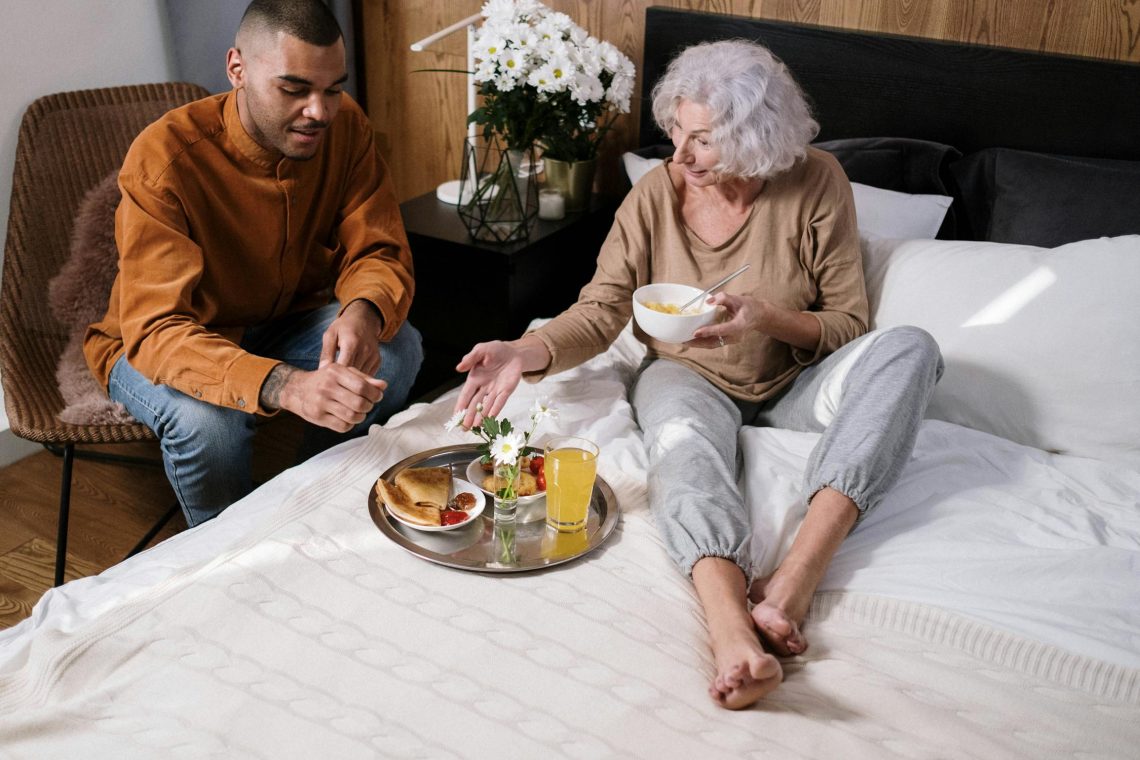Palliative Care
If you or a loved one have received a life-limiting diagnosis, you’re undoubtedly navigating a world of varied emotions. Once the anger, upset, and frustration have simmered, it’s time to formulate a plan for moving forward — and one that ensures your loved one receives the best support and care possible.
Those who haven’t encountered palliative care before often misinterpret what it is and what it entails. It makes sense; it’s a unique situation, and for some, it can be a daunting and distressing thought. It needn’t be. Read on to learn about some common misconceptions about palliative care for seniors and how it can significantly improve the quality of life for those who receive it.
What Is Palliative Care?
First, what is palliative care? The components of care will vary between individuals and their unique needs. Generally speaking, palliative care is specialized care that’s provided by a team of interdisciplinary healthcare professionals.
The purpose is to make the person living with a life-altering illness comfortable by helping them manage facets of their condition and evolving their care as their symptoms progress. The best care providers will consider not only their clients’ mental and emotional needs but also their network of loved ones.
Now, some common misunderstandings.
1. You Must Go to a Hospital or Hospice to Receive Palliative Care
You can secure at-home palliative care services where qualified and certified healthcare professionals can visit the homes of their clients. There’s also the option to secure 24/7 care with help from a live-in caregiver.
This isn’t to disparage the hard work of nurses and doctors in hospitals; it’s more to say that an increasing number of people prefer to stay at home in familiar surroundings. Doing so offers comfort;they can see friends and family as they’d like, keep a beloved family pet, and don’t need to battle the often noisy, busy and distracting hospital system.
2. Palliative Care Is Exclusively for People Diagnosed with Cancer
You’ve likely heard of palliative care being provided to people who are living with a cancer diagnosis. While this is accurate, individuals diagnosed with other life-limiting illnesses — like cardiovascular disease, dementia, Parkinson’s, or Multiple Sclerosis — can also benefit from palliative care.
3. Palliative Care Is Only Deployed in the Late Stages
Palliative care isn’t exclusively end-of-life care; it’s available anytime following a life-altering diagnosis. It could be secured as early as day one and retained for the rest of the person’s life — which might be many years.
Securing professional help from palliative care providers in the early stages — in tandem with regular doctor visits to receive prescribed treatments — can help with the pain caused by medications and the illness itself.
It’s also worth noting that palliative care doesn’t always mean that end-of-life is a given. Some people, like those living with cancer, may be undergoing treatments that could result in success.
4. Palliative Care Is Exclusively Pharmaceutical
People sometimes assume that palliative care only involves the distribution of medicine to keep pain at bay. While seeing a family GP is still necessary,a personalized palliative care plan with a home care companyinvolves a multi-pronged approach, which may include visits from Registered Massage Therapists, Physiotherapists, nurses, and Personal Support Workers.
This strategy can help with physical discomfort and emotional and social challenges. For example, Personal Support Workers can provide companionship and respite for family members. Massage can ease anxiety and depression, and physiotherapy can lessen muscle pain and rigidity — extending range of motion and independence.
The Bottom Line
Professional palliative care addresses the needs of a person living with any type of life-limiting illness so that they can make the most of life safely, comfortably, and with dignity.If you or a loved one has received a life-altering diagnosis, palliative care in the comfort of home is worth serious consideration.




